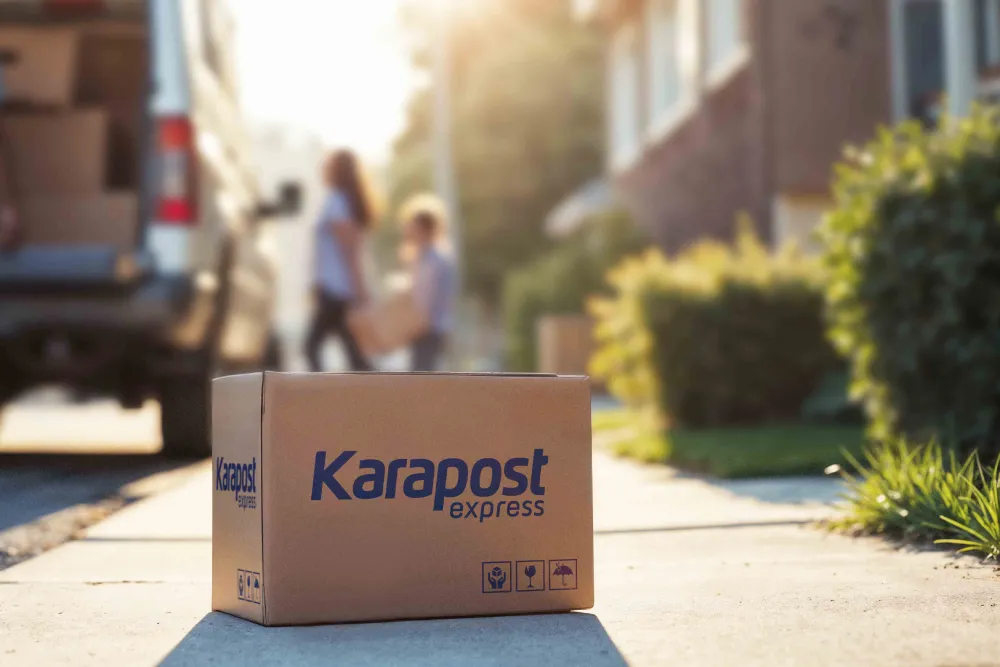Importing Goods with Karapost
Karapost, as a reputable import company, operates with the aim of meeting domestic market needs and providing high-quality products from various global brands. Our import services cover a wide range of sectors, including electronics, home appliances, clothing, food industries, and more from all countries. Our specialized experts offer professional consulting on imports to our clients, ensuring a reliable and satisfying purchasing experience.
📦 Product selection and supplier sourcing: the first step in importing goods
One of the most important stages in importing goods is the correct selection of products and reliable suppliers. To achieve this, you must first identify the needs of the domestic market and then negotiate with trustworthy and experienced suppliers. The market research phase is conducted using official statistics, analytical reports, and surveys.
After identifying the desired product, you should look for reputable foreign suppliers. Utilizing international platforms like Alibaba, Made-in-China, and TradeKey can be beneficial in this regard. Obtaining a Proforma Invoice is the first step in importing goods. The Proforma includes details such as product specifications, pricing, payment terms, and delivery time. A crucial point to avoid potential issues is to review the history and feedback from other buyers before finalizing any contracts.
📄 Receiving import permits is an important step
To officially import goods, you must register the product and supplier information in the National Trade System (NTSW) and specify the customs tariff code (HS Code). Certain products, such as pharmaceuticals, chemicals, telecommunications equipment, and food items, require special permits from relevant organizations like the Ministry of Health, Food and Drug Administration, or Atomic Energy Organization.
Import Permits; Which Goods Require Permits?
To import goods into Iran, various permits are required depending on the type of product. These permits can be issued by different organizations such as the Ministry of Health, Food and Drug Administration, Atomic Energy Organization, and Standard Organization.
| Product type | Licensing authority | Description |
|---|---|---|
| Food and Pharmaceutical Products: | Ministry of Health | They must have valid and translated labels |
| Electronic Devices and Telecommunications Equipment | Regulatory Authority for Communications and Radio | - |
| Chemical and Industrial Materials | Atomic Energy Organization, | Must have CE, ISO, and MSDS certifications and comply with environmental standards |
💵 Payment of import costs
The costs of importing goods are divided into three main categories, understanding which will help you to have accurate pricing and increase your profit margin.
- Customs Payments: This includes import duties, value-added tax (VAT), and clearance fees. Each of these amounts is usually calculated based on the value of the goods and their tariff code.
- Transportation Expenses: These vary depending on the mode of transport (air, sea, land). Sea transport is more cost-effective for bulky and heavy shipments, while air transport is more suitable for sensitive and urgent goods.
- Insurance Costs: This is done to prevent potential losses during transportation. The calculation of this amount is based on the value of the goods and the type of transport, with the insurance policy number specified on the bill of lading.
Conditions for Importing Goods and Required Documents
For importing goods and customs clearance, it is mandatory to provide documents such as proforma invoice, commercial invoice, bill of lading, certificate of origin, and import permits to customs.
- Customs Declaration: Registering product information in the Customs EPL system
- Inspection and Product Assessment: Examination of the shipment by customs officers
- Payment of Customs Duties and Taxes: Based on value and tariff code
- Issuance of Clearance Permit: The clearance permit is issued upon approval of documents and payment of fees.
⚖️ Laws and Regulations for Importing Goods
Import regulations are constantly changing, and lack of awareness can lead to cargo seizure, heavy fines, and even import bans. In this section, we will examine some of the most important regulations.
- Order Registration Law:All products must be registered in the Comprehensive Trade System before importing goods into Iran and obtain a valid tracking code.
- Customs Valuation Law: The value of the goods must be declared based on the actual price and in accordance with the proforma invoice. Any concealment or declaration of a lower value may result in seizure and fines.
- Standards and Certifications: Goods must comply with national and international standards. Providing CE and ISO certificates is mandatory for certain products.
🌟 Consulting for Importing Goods: Why Karapost is the Best Option?
Specialized consulting for importing goods helps businesses optimize this process. The Karapest team supports you in selecting the best solutions by analyzing global markets, identifying reputable suppliers, and evaluating customs regulations. Having dedicated offices worldwide allows for quick coordination with suppliers, reducing transportation costs and expediting customs procedures. By facilitating these steps and minimizing associated risks, we help our clients focus more on developing their business with peace of mind.
